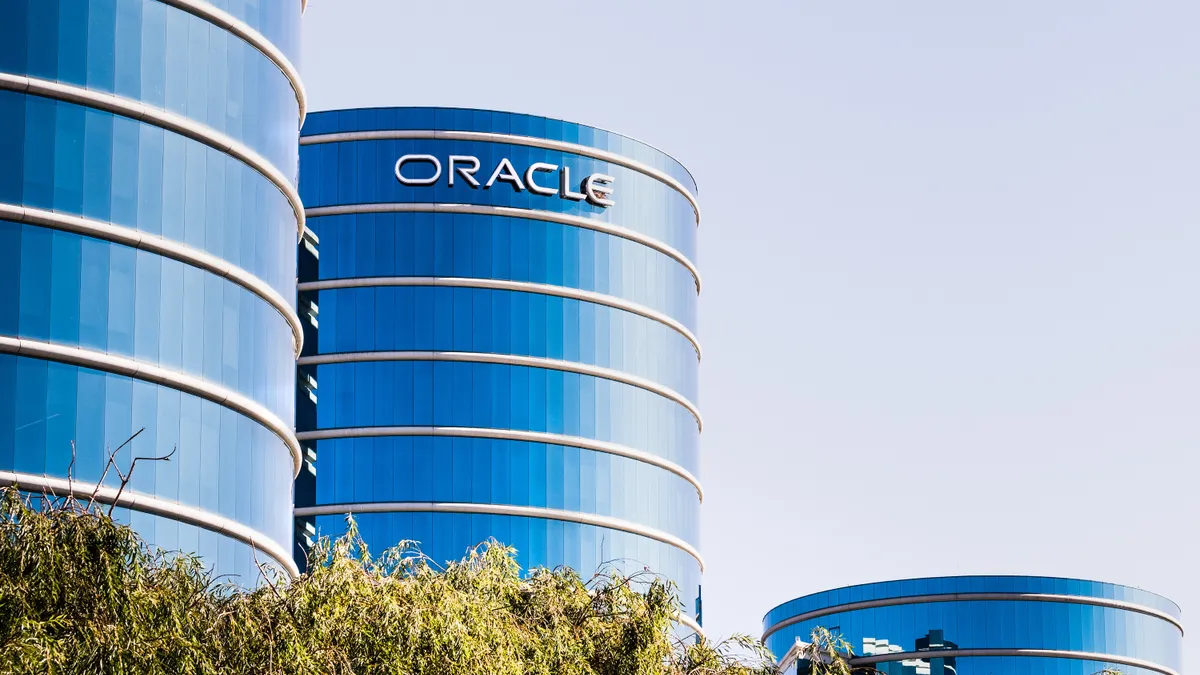Editor’s Note: Ready to de-stigmatize mental health at work? You’re in the right place. In their time at HR Dive, Caroline Colvin has found recurring pain points in the HR world, including burnout, a lack of psychological safety and the stressful uncertainty of hybrid work. Come along with them as they tackle workplace wellness and find solutions to make hybrid work a little less draining. Questions or pro-tips? Email them at [email protected].
The pandemic put everyone’s mental health through the ringer, but coronavirus-related stress has hit certain groups of people extra hard. Black people, Latinx folks, Indigenous people. Essential workers and first responders. Women in management positions. Working parents. And God bless anyone who has lived at the intersection of any of these categories for the past 19 months.
Early on, McKinsey’s 2020 Women in the Workplace report indicated that working parents’ childcare concerns were an issue. Of the parents surveyed, 11% of fathers and 15% of mothers said they were considering a step back from their career — compared to 10% of childless men and 12% of childless women.
Meanwhile 10% of childless men and women surveyed said they were considering leaving the workforce in 2020. Compare that to 11% of fathers and 18% of mothers who’d been thinking about quitting. The statistics were even more dire for parents of children under 10.
Fast forward to another equally telling data snapshot from July 2021: 60% of parents surveyed by OnePoll and caregiver platform SitterCity said the mental load of parenting was "overwhelming." A little more than half of parents surveyed said they did not feel ready for the 2021-2022 school year and 45% of respondents said they had no idea where to look for childcare.
Touching on the 60% stat, Jada Rashawn, a nannying entrepreneur who is a consultant for Sittercity, said to HR Dive, "A lot of that has to do with the fact that parents still need childcare. But they also still need to provide for their family i.e. go to work. So where does that leave us?"
I don’t have any children of my own. But I am endlessly impressed by the way parents have become teachers, world-class chauffeurs, chefs, epidemiologists, disciplinarians and attentive entertainers for kids stuck at home. Seeing mommy bloggers, family friends and employees on my own team navigate all of those demands — under ever-evolving restrictions and stressors — has shown me "Pandemic-Era Parent" is an exhausting role to play. And SitterCity’s statistic that 69% of parents surveyed said they’re overwhelmed by the constant routine changes makes sense, given that environment.
Molly George, co-founder of Kickstand Communications, confirmed this. The working parent, who has juggled motherhood, running a business and caregiving tasks throughout the pandemic, told HR Dive, "Certainly over the last 18 months, the challenges we saw was that work didn't lighten up, right? Your work responsibilities didn't go away. They were just kind of compounded with a lot of additional personal responsibilities, that you weren't necessarily having to split your focus between before the pandemic."
At least parents got a reprieve when kids hopped on the bus to their elementary, middle or high school. "The challenges that we’ve faced over the last 18 months aren't anything new. They've just been magnified a bit," she said.
While George’s balancing act has been difficult, she used her experiences to inform her approach to compensation and benefits as an employer. In 2021, Kickstand offered its parents a $500 monthly childcare stipend, which rounds out to an approximately $6,000 working parents raise. Speaking about Kickstand’s parental benefits, George said, "My business partner [Kristina Kennedy] and I both have personal experiences that kind of shaped the way that we think about this."
In Sittercity’s study, 70% of parents agreed that having an extra set of hands would bring them a lot of relief this upcoming school year. Beyond the survey, it wouldn’t be a reach to say that providing employees with a means of acquiring dependable, holistic childcare can make all the difference.
Tapping into her experiences with Sittercity’s talent pool and her Instagram community as a nannying influencer, Rashawn has observed a steep increase in working parents’ need for nannies.
"They've really been leaning on the in-home childcare industry now more than ever, to be able to give them that peace of mind. Whether it's on a full-time basis, a part-time basis, or even just on occasion," Rashawn told HR Dive.
Babysitters who held the fort down for date night now would take over household management responsibilities while clients focused on their own work. Nannies who took kids to and from school were now being asked to make sure their wards logged into Zoom class in a timely manner.
"Families are also even going as far as to considering governesses which are teacher-nannies to really kind of take over even that educational component," she added. "If they have a situation where schools shut down or their child may contract COVID-19, [working parents] want someone who can still help not only take care of their children but also educate them."
For some companies, $500 a month per person may be a lot to swing. HR professionals and CFOs, as you clutch your metaphorical pearls, consider this: the way you show up for parents in your workplace doesn’t necessarily mean you have to shell out extra money. Flexibility is its own benefit. This ethos was the foundation of George’s approach, before the $6,000 raises.
"It might have been, ‘Look, if you're a parent you're working for us… your kid's gonna get sick occasionally. You're gonna have to take him to the doctor or you're gonna have a really important Halloween party at your kids school that they really want you to be a part of.’ The support in that stage of our business was more about flexibility and understanding from kind of an hours perspective," George explained.
Money can’t buy happiness, but looking at this case study, money can at least buy stress relief, a more enriching Zoom school experience and parents a little more time.




















